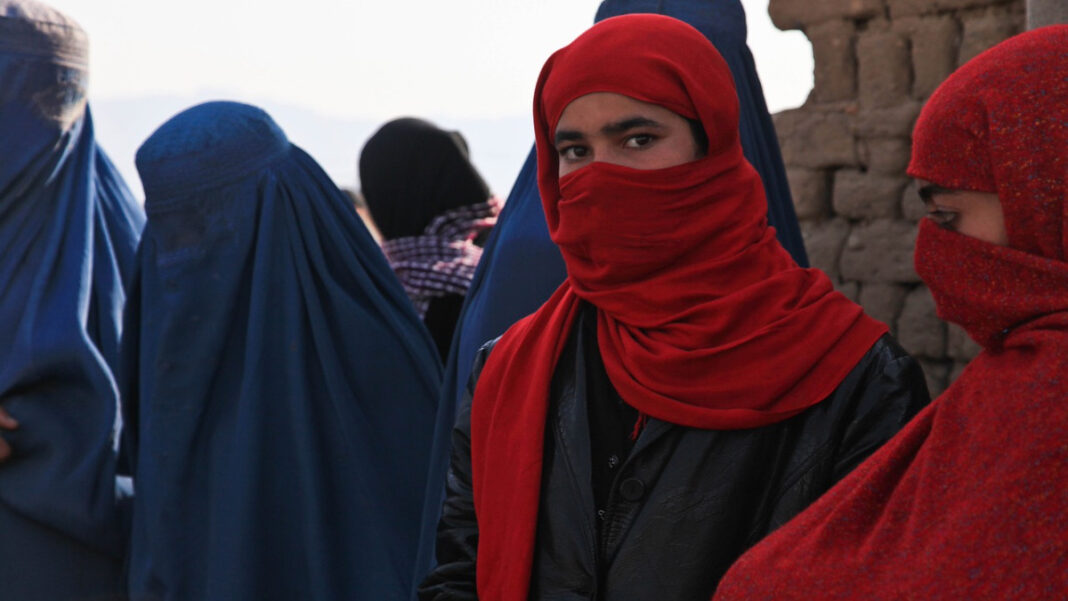AFGHANISTAN: The Taliban have banned university education for women in Afghanistan, drawing strong international condemnation and despair among the youth of the nation.
Taliban officials swiftly put an end to protests in Afghanistan
The suspension, announced by a spokesman for the Ministry of Higher Education, will be in immediate effect and will remain in place until further notice, a letter from the cabinet stated.
During a meeting of the UN Security Council on Afghanistan in New York, the Taliban government—which is not acknowledged internationally—made the announcement.
The ban significantly restricts women’s access to education; since the Taliban re-emerged last year, girls have already been denied admission to secondary schools. On Wednesday, a few women organised protests in the Afghan capital, Kabul.
Afghanistan Women’s Unity and Solidarity protesters said, “We have descended upon Kabul’s streets today to protest the closure of the female universities.” However, Taliban put an end to the small protests.
A new low further violating women’s rights
The decree, which returns Afghanistan to the time under the Taliban’s initial rule when girls could not enroll in formal education, has drawn condemnation from the UN and a number of other nations.
It was “a new low,” further breaching the right to equal education and deepening the erasure of women from Afghan society, said the UN’s Special Rapporteur on Afghanistan. Such action will “have implications for the Taliban,” said the US.
“The Taliban cannot hope to be recognised as a genuine member of the world community unless they respect the rights of all Afghans,” Anthony Blinken, Secretary of State, said in a statement. He als added, “No nation can develop if half of its people are held back.”
Stephane Dujarric, a spokesman for the UN, called the move “troubling.” Dujarric told reporters on Tuesday that it was “obviously another broken promise from the Taliban.”
Since their takeover, women have had less space, he claimed, both in schooling and access to public spaces.
Female students have spoken to the media about their suffering. One student at Kabul University remarked, “They demolished the one bridge that could have connected me with my future.”
Another student, who had been studying Sharia Islamic law, said she had “lost everything,” and the Taliban’s decree violated “the rights that Islam and Allah have given us.”
Meanwhile, the Taliban has defended its move, claiming that these limitations were made to protect “national interest” and women’s “honour.”
In the majority of the country’s provinces, the Taliban had just three months earlier permitted thousands of girls and women to take university entrance examinations.
However, there were limitations on the subjects they could apply for. Engineering, economics, veterinary science, and agriculture were all off-limits, and there were also strict restrictions on journalism.
Even before Tuesday’s announcement, universities had already been operating under norms that discriminated against women since the Taliban took control of the nation in 2021.
Female students could only be taught by female academics or elderly males, and there were separate entrances and classrooms for each gender. Despite this, women continued to pursue education.
Tuesday’s Unesco report noted a 20-fold rise in the percentage of women enrolled in higher education between 2001 and 2018—the period of the Taliban’s reign.
A university professor and Afghan activist in the US claimed that the Taliban’s suspension of university education for women had completed their isolation of women.
“The Taliban had no choice but to do this. Afghanistan is a prison for women, not a place for them to live.” Humaira Qaderi told the media.
Also Read: Australia Narrowly Defeats Afghanistan in the T20 World Cup



